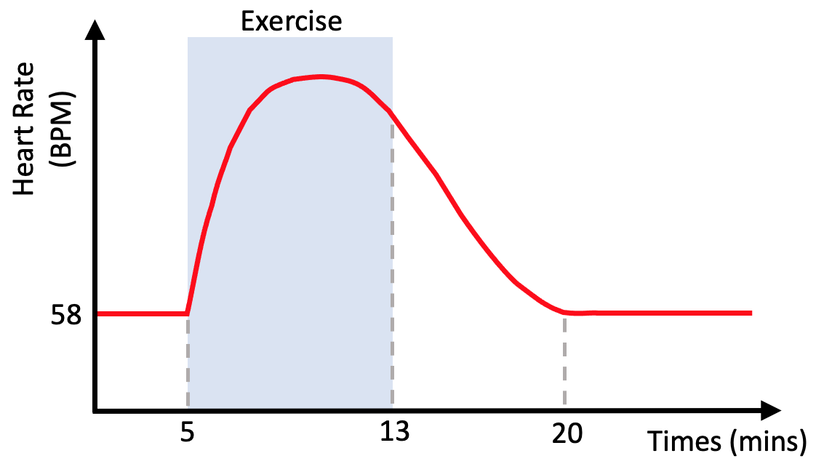Back to B4 Home
B4: Quiz 8
B4: Quiz 8
1) An individual starts jogging at quite a fast pace.
a) What happens to the individual’s heart rate? Explain why this change happen.
b) What happens to the individual’s breathing rate? Explain why this change happen.
2) The level of lactic acid in an athlete increases as they start exercising.
a) Explain why exercising causes the levels of lactic acid in an athlete to increase.
b) How does the build up of lactic acid in muscles affect the performance of a muscle?
3) What is oxygen debt?
4) Out of aerobic respiration and anaerobic respiration, which produces more energy?
5) A student monitors their heart rate before, during and after doing some exercise. Their results are shown below.
a) What happens to the individual’s heart rate? Explain why this change happen.
b) What happens to the individual’s breathing rate? Explain why this change happen.
2) The level of lactic acid in an athlete increases as they start exercising.
a) Explain why exercising causes the levels of lactic acid in an athlete to increase.
b) How does the build up of lactic acid in muscles affect the performance of a muscle?
3) What is oxygen debt?
4) Out of aerobic respiration and anaerobic respiration, which produces more energy?
5) A student monitors their heart rate before, during and after doing some exercise. Their results are shown below.
The heart rate before the student started exercising was 58 bpm. The student’s heart rate does not come back to this level until 7 minutes after they stop exercising. Explain why the student’s heart rate does not come back to 58 bpm immediately after they stop exercising.
6) The liver can also deal with the lactic acid that is produced during anaerobic respiration. Explain how the lactic acid gets to the liver and explain what the liver does with the lactic acid.
6) The liver can also deal with the lactic acid that is produced during anaerobic respiration. Explain how the lactic acid gets to the liver and explain what the liver does with the lactic acid.

